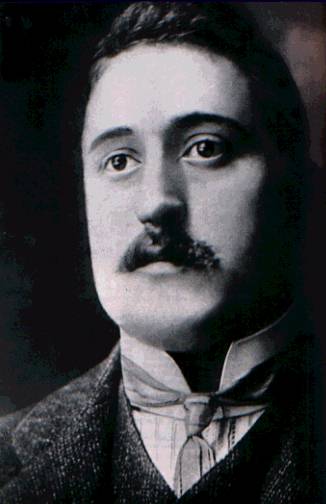Guillaume Apollinaire (Guillaume Apollinaire)

Poet. A leader of the Paris avant-garde before and during World War I, his impact on poetry was similar to that of his friend Pablo Picasso on painting. His two major books of poetry are classics of French Literature. “Alcools” (1913) combined traditional verse forms with modern imagery and used snatches of overheard conversation, slang, and lack of punctuation. In “Calligrammes” (1918), Apollinaire arranged words on the page to form patterns resembling objects: a drunken man, a watch, the Eiffel Tower. At the time this eccentric use of typography was thought to have stretched poetry to its limit. As an art critic Apollinaire was the first to champion Cubist painting; and he coined the word “surrealism” to describe the Satie-Picasso-Cocteau ballet “Parade” (1917). His other works include the novella “The Poet Assassinated” (1916) and the play “The Breasts of Tiresias” (1917). The latter was made into an opera (1947) by composer Francis Poulenc, who also set many of Apollinaire’s poems to music. He was born Wilhelm Apollinaris de Kostrowitsky in Rome, the illegitimate son of an eccentric Polish mother. He travelled widely before settling in Paris, and his outlook was more European than French. From 1907 to 1911 he was romantically involved with the painter Marie Laurencin, whose work he first brought to public attention. In 1911 Apollinaire was arrested on suspicion that he was involved in the notorious theft of Leonardo Da Vinci’s “Mona Lisa” from the Louvre Museum. The charges were later dropped, but his despair and humiliation over the incident inspired some of the finest poems in “Alcools.” In 1916, while serving in the French Army during World War I, Apollinaire received a shrapnel wound in the head and was trepanned. He never fully recovered, and it is believed that his death from Spanish Influenza two years later resulted from his weakened condition. (bio by: Bobb Edwards)
Born
- August, 26, 1880
- Italy
Died
- November, 11, 1918
- France
Cemetery
- Cimetière du Père Lachaise
- France

